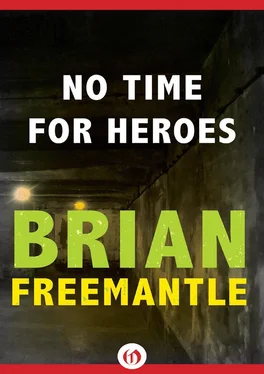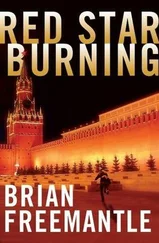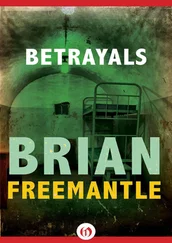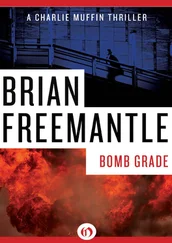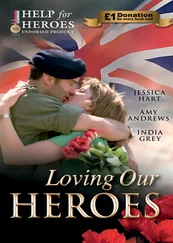Brian Freemantle - No Time for Heroes
Здесь есть возможность читать онлайн «Brian Freemantle - No Time for Heroes» весь текст электронной книги совершенно бесплатно (целиком полную версию без сокращений). В некоторых случаях можно слушать аудио, скачать через торрент в формате fb2 и присутствует краткое содержание. Жанр: Триллер, на английском языке. Описание произведения, (предисловие) а так же отзывы посетителей доступны на портале библиотеки ЛибКат.
- Название:No Time for Heroes
- Автор:
- Жанр:
- Год:неизвестен
- ISBN:нет данных
- Рейтинг книги:5 / 5. Голосов: 1
-
Избранное:Добавить в избранное
- Отзывы:
-
Ваша оценка:
- 100
- 1
- 2
- 3
- 4
- 5
No Time for Heroes: краткое содержание, описание и аннотация
Предлагаем к чтению аннотацию, описание, краткое содержание или предисловие (зависит от того, что написал сам автор книги «No Time for Heroes»). Если вы не нашли необходимую информацию о книге — напишите в комментариях, мы постараемся отыскать её.
No Time for Heroes — читать онлайн бесплатно полную книгу (весь текст) целиком
Ниже представлен текст книги, разбитый по страницам. Система сохранения места последней прочитанной страницы, позволяет с удобством читать онлайн бесплатно книгу «No Time for Heroes», без необходимости каждый раз заново искать на чём Вы остановились. Поставьте закладку, и сможете в любой момент перейти на страницу, на которой закончили чтение.
Интервал:
Закладка:
‘A new Mercedes and $5,000,’ reminded Yerin.
‘Just laugh at them?’ queried the killer.
‘That’s all. Just laugh at them,’ agreed Gusovsky.
After the man left, Maksim Zimin said: ‘No-one expected the American to come back.’
‘That won’t be a problem,’ said Yerin. ‘In fact, I don’t think he should be left out.’
‘What are you suggesting?’ asked the thin-bodied Chechen leader.
‘I don’t have an idea at the moment,’ admitted Yerin. ‘But I will. We’ll fix Danilov and we’ll fix the American.’ The man smiled. ‘Before the year is out, we’ll virtually be running Moscow: we’re practically doing it already.’
CHAPTER TWENTY-FIVE
The available material on Mafia Families in Moscow lacked any of the detail official police dossiers should have contained. It was predominantly newspaper clippings, giving the impression the city’s freed press had better access to information on organised crime than the police department supposedly responsible for gathering it, which Danilov guessed was probably true. Although the input to the records had been Metkin’s responsibility until recently, and therefore the man’s failing, Danilov prevented it being obvious to the American. He had Pavin prepare a verbal instead of a factually written presentation.
Pavin identified six Mafia clans in the capital, each with links to major cities throughout the former Soviet Union: the connections with St Petersburg were particularly strong. The Ostankino, with which Ivan Ignatsevich Ignatov was linked, was not reckoned to be the largest or the most powerful. The strongest and best organised was the Dolgoprudnaya who, under the freedoms of the new market economy, were already suspected of large-scale involvement and investment in legitimate businesses.
‘Just like the mobs in America. And in Sicily,’ interrupted Cowley. When he had been married to Pauline, Cowley had served at the Rome embassy: his later posting to London, where his marriage had collapsed and Pauline had met Barry Andrews, had been a reward for Cowley’s part in breaking a major Mafia drugs cartel.
Relaxing and becoming more assured, Pavin said the Chechen were the chief rivals to the Ostankino. Pavin used the Western phrase, calling territorial battles turf wars. What the Americans and Italians called capos were leaders in Russia; enforcers were bulls; gangs were brigades. Those who controlled them were therefore Brigadiers, not God-fathers, although Brigadiers were thought to operate under higher authority for which there was no colloquialism. Each Family imposed entry fees upon anyone wanting to become a member, but each commanded a casual, transitory army of small-time thugs. Here Pavin used another street word – lokhi – which strictly translated as amateur.
The Chechen concentrated upon Moscow’s four airports – mostly upon Sheremet’yevo, the international receiving terminal from which the most valuable Western articles could be stolen. They raided passenger luggage and freight, sufficiently able to bribe or intimidate security guards that they freely brought lorries right up to the warehouses to haul away what they stole. Their knowledge and control of the airport involved them in the shipment of drugs from the south, where there were big growing areas for marijuana and the poppies from which heroin was refined.
The Chechen appeared to work in reasonable harmony with the other large-scale drug traders, the Assyrian Family. With their hordes of street bulls, the Lubertsy brigade’s single most important income was from extortion, from small business up through to joint-venture companies with Western, overseas connections who considered it easier to pay off than officially protest. The Ramenki extended their running of prostitutes around the main hotels to exacting tributes from the hotels themselves, which again found it easier to pay than protest. The Ostankino, who had been the quickest to see the potential of spare and discarded weaponry following the disbandment of the former Soviet military machine, were the armourers for all the other Families, and because of their access to every sort of gun, grenade, shell and explosive device were frequently the most violent, especially in their turf wars with the Chechen.
It took Pavin almost an hour to make the presentation: the man was croaking, dry-throated, when he finished. Danilov thought Pavin had done brilliantly with what little had been available, and wished there had been a proper higher authority from which he could have got an official commendation, beyond the personal congratulation he intended later.
‘What about specifics?’ demanded Cowley worryingly.
‘Not enough,’ conceded Pavin, at once but not apologetically. ‘They’ve divided Moscow, like your five Families have carved up New York: the Lubertsy, for instance, are overlords of the south-east of the city, the Dolgoprudnaya have the north-west. A lot of Western copying, here. They meet in restaurant and nightclubs; particularly in nightclubs, with the new freedoms. We’ve got some locations but they change: by the time we get there, it could be a place of the past. And the fear is absolute. No-one is going to tell us that theirs is the restaurant or club where anyone meets. At worst they’d be killed, their premises bombed. If they escaped physical harm their drink and food supplies would cease: what customers remained would be met at the door and turned away.’
‘The old ways are still the best,’ remarked Cowley.
Pavin did apologise in advance for the limited number of known identities. He produced a total of fifteen, spread throughout the Families: some were incomplete, lacking patronymics and none, Danilov noted, were those on Lapinsk’s brief letter, or had appeared in Serov’s code.
‘What about overseas links, to either America or Sicily?’ he asked.
Pavin shook his head. ‘Not a thing.’
‘So we’ve got ourselves a first,’ said Cowley reflectively.
‘That we know about,’ qualified Danilov.
The murder file already created by Pavin on Ivan Ignatsevich Ignatov was far more comprehensive than any on the organised crime Families. Ignatov was thought to have been forty-nine years old at the time of his death, although the date of birth in Kiev, in the Ukraine, was uncertain. There was no date, either, for his arrival in Moscow or record of the permission to live in the city that had been a legal requirement under the old Communist system, so he had been permanently breaking the law until five years earlier. Each time, there had been a sentence for the residential offence in addition to the verdicts on eight of the ten separately listed criminal convictions. Five had been for physical violence, the others for larceny, burglary and running prostitutes. He’d served a total of eight years in various prisons, two in the Ukraine, the rest in Russia. Apart from extra jail terms for illegal residency, there had always been enforcement orders for the man to be returned to the Ukraine at the completion of each jail term.
Ignatov had been linked to the Ostankino Family during his last arrest. It had been for violence, for smashing the arms and legs of a breadshop owner on Ulitza Ogarova during an extortion demand, for which he had been jailed for three years. The baker had named the Ostankino as a crime syndicate to which he had been paying protection money: Ignatov had been the collector, demanding side payments for himself. In court Ignatov had denied any knowledge of any gang. Eight months after the trial at which the Ostankino Family had been named, the extortion victim, who had just started to walk again, had been knocked down in a hit-and-run accident and was now permanently crippled, confined for the rest of his life to a wheelchair.
Court records provided three different addresses in Moscow – one a brothel operated by three shalava, sleevesnatching street whores unable to get foreign clients because of age or feared disease, reduced to charging visiting peasants less than a hundred roubles a time. No-one, at any address, admitted any knowledge of the dead man. His occupation was variously given as a labourer and a porter, never with any workplace or employer. So far no friends or acquaintances had been found, nor any record of his having been married or permanently involved with any woman.
Читать дальшеИнтервал:
Закладка:
Похожие книги на «No Time for Heroes»
Представляем Вашему вниманию похожие книги на «No Time for Heroes» списком для выбора. Мы отобрали схожую по названию и смыслу литературу в надежде предоставить читателям больше вариантов отыскать новые, интересные, ещё непрочитанные произведения.
Обсуждение, отзывы о книге «No Time for Heroes» и просто собственные мнения читателей. Оставьте ваши комментарии, напишите, что Вы думаете о произведении, его смысле или главных героях. Укажите что конкретно понравилось, а что нет, и почему Вы так считаете.
